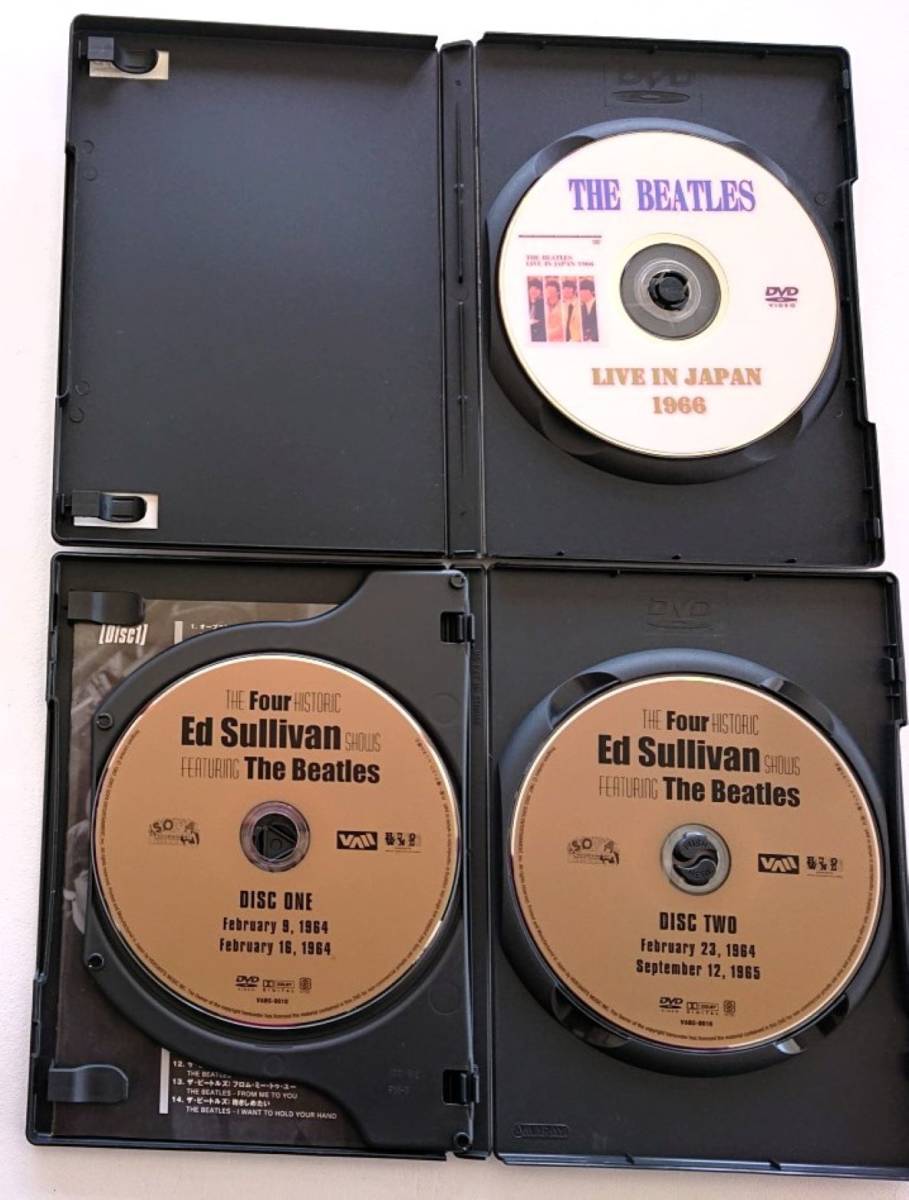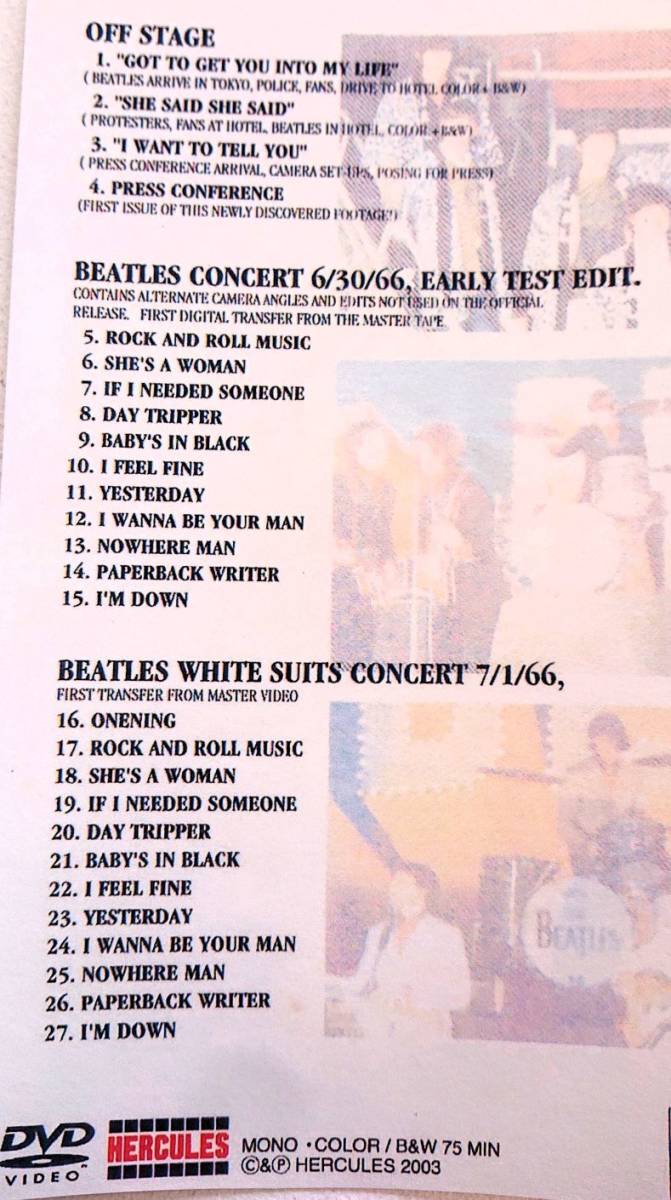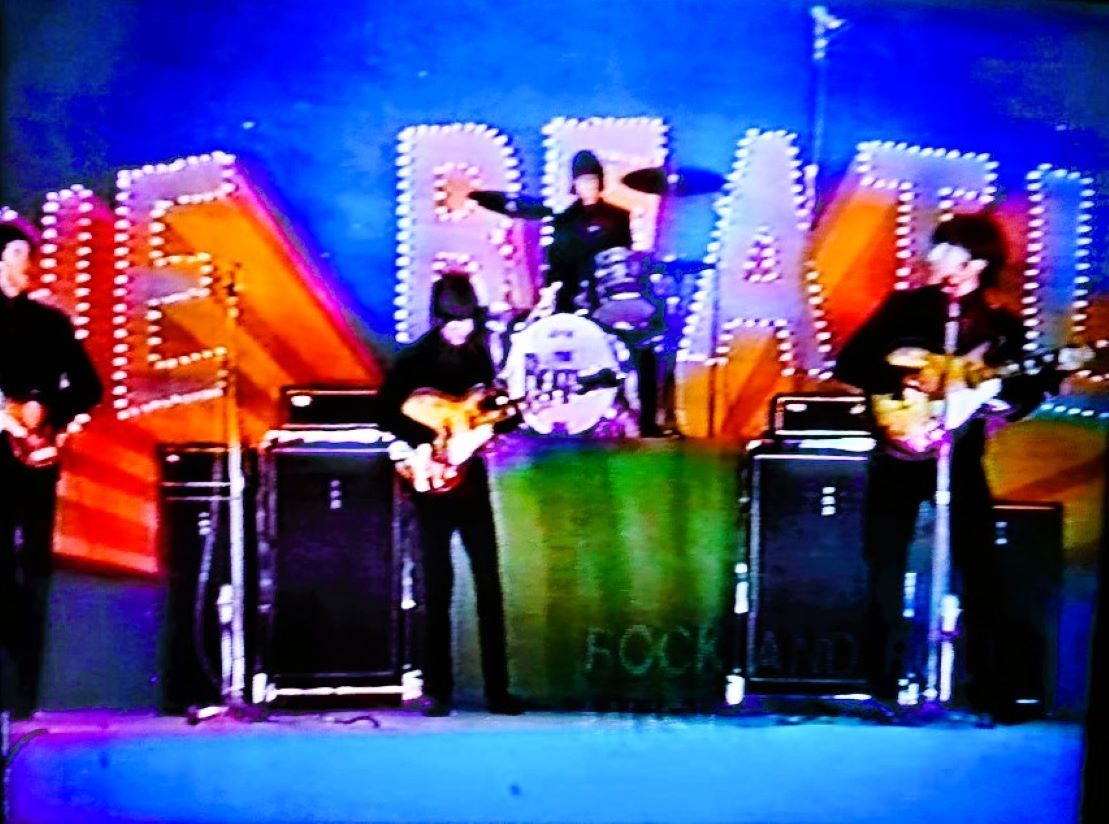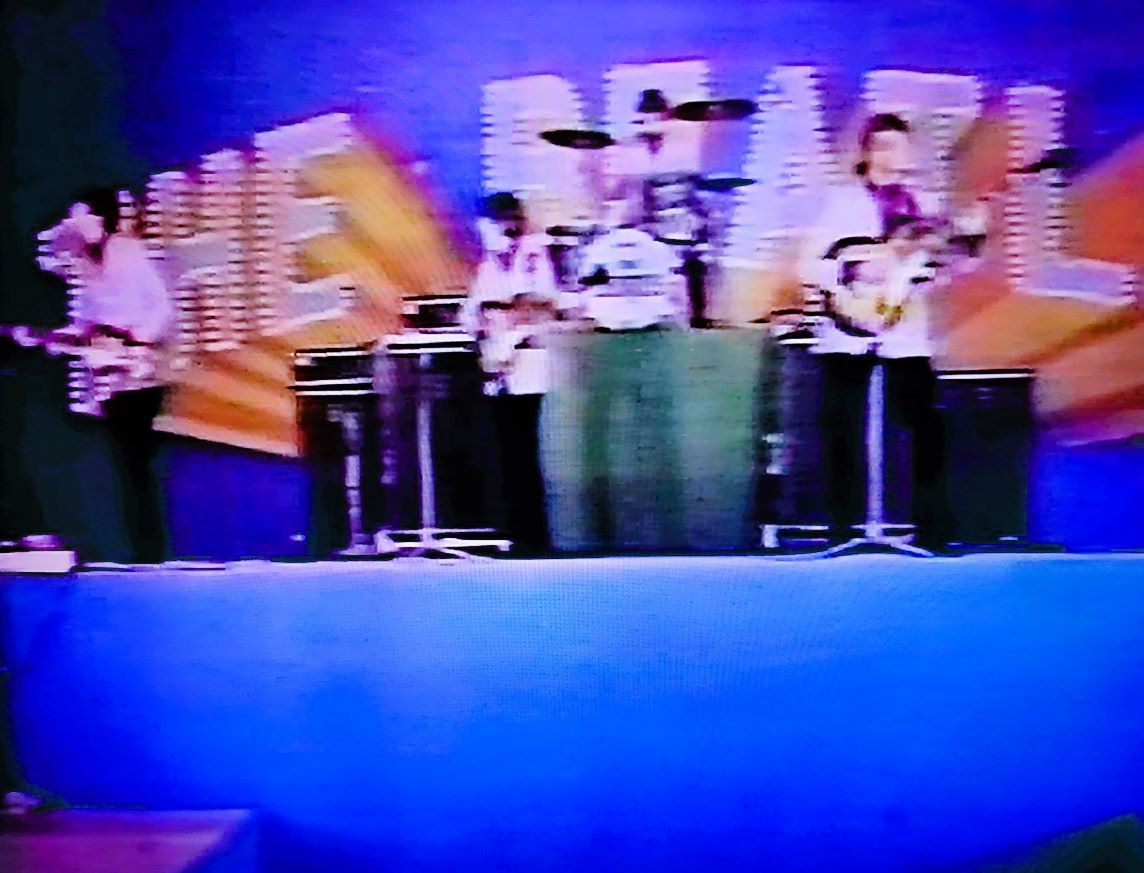[Free shipping] The Beatles DVD 2 sets [Ed Sullivan presents The Beatles - Uncut Complete Edition] 240min + [THE BEATLES LIVE IN JAPAN 1966]
[Free shipping] All 4 episodes of The Beatles' appearances on The Ed Sullivan Show, completely uncut, including commercials aired at the time of broadcast, 20 historic performance scenes including 6 elusive songs that will be released for the first time 40 years after the program was broadcast, recorded on a 2-disc DVD, and also a DVD recording the 2 performances of The Beatles' first and last visit to Japan in 1966, a total of 2 sets will be exhibited. This is not a rental product. ② has only been viewed twice.
Kai
①DVD[THE FOUR COMPLETE HISTORIC Ed Sullivan SHOWS FEATURING The Beatles AND OTHER ARTISTS INCLUDING] 2-disc set, 240 min, VABS-0010, CD release, 2003, domestic edition
*For detailed artist and song names, please see image 5/6.
②DVD[THE BEATLES LIVE IN JAPAN 1966] 27 songs, 75 min, CD release, 2003, import edition
*For detailed song names, please see image 7.
① is,
"This work was sold on the Internet in the United States in 2003, and attracted attention for including the entire broadcast of the Beatles' appearances on "The Ed Sullivan Show" on February 9, 16, and 23, 1964, and on September 12, 1965 (including parts of other performers and MCs). This time, it has been happily promoted to regular sales. I look forward to the future progress of the "Beatles Program Project". 10 of the 20 songs they performed were also seen in "First U.S. Visit", but the picture quality has improved. A must-have for enthusiasts! There are some parts where Paul and John's voices are quiet due to microphone problems, but their partner's voice stands out and it's interesting. In "I Saw Her Standing There", "I Want to Hold You", and "From Me to You", you can clearly hear John singing higher parts than Paul in falsetto. In the NHK rebroadcast of "Help!" in 1992, the second verse where John gets the lyrics wrong was cut, but this is the complete version. The February 23rd episode was recorded only with their scenes, and there are geeky fun things like the knot of the host Sullivan's tie being different (lol). ”
From the liner notes of Naoaki Moriyama in the March 2004 issue of Record Collectors
② is,
The Beatles performed in Japan five times over three days from June 30th to July 2nd, 1966 at the Nippon Budokan in Tokyo, two of which were broadcast on TV. The first was the evening performance on June 30th, and the second was the afternoon performance on July 1st, and this DVD contains these two performances. The version broadcast in real time was the July 1st performance, and the June 30th performance was first broadcast on TV 12 years later in 1978. Although the Beatles performed so many shows, it is good to know that the only ones that remain as “historical records” in full color are the <US Shea Stadium> and <Nippon Budokan performances>.
Tweets--------------------------------------------------------------------------------------------------------------------
...It's not so much about the performance, but the significance of the Budokan concert, which took place two years after the Tokyo Olympics in 1964, was a turning point in the consciousness of young people in Japan and in the music industry, so it's really significant.
On the night of their visit, Yuzo Kayama made them eat sukiyaki, and even though the Blue Comets and others sang as an opening act, they were kicked out of the venue and couldn't see the performance, and in the audience were five members of the Tigers, who would become the trigger for the GS boom, who came from Kyoto, and five years later, they brought the curtain down on the GS boom started by the Beatles on the same stage at the Budokan, and then the 70s new rock era arrived, with Deep Purple, Chicago, and Zeppelin filling the Budokan almost every day with the <foreign artist> boom that followed. Before The Beatles came to Japan, Satoshi Akao was against the Nippon Budokan, saying, "It is unacceptable to let people who don't understand martial arts use the sacred martial arts venue!" But it became a "sacred place of music," and many artists and live performances were recorded on LPs and DVDs and sent out to the world, and the name "BUDOKAN" became known all over the world in both name and reality. Nowadays, there are many slogans such as "Aim for Budokan!" in TV anime and idol groups, and the origin of these is the 1966 Beatles' visit to Japan.
The "Beatles Visit to Japan Studies," which was serialized for a long time in the music information magazine [Record Collectors], is filled with memories of those who were there.
We are listing these items for sale as part of inventory adjustment, but unfortunately we will not sell them separately. Please purchase two sets. Although they have been carefully stored, the records are clean, but they have been stored for a long time, so please refrain from purchasing if you are nervous. No claims or returns will be accepted. We will strive to ship quickly.









